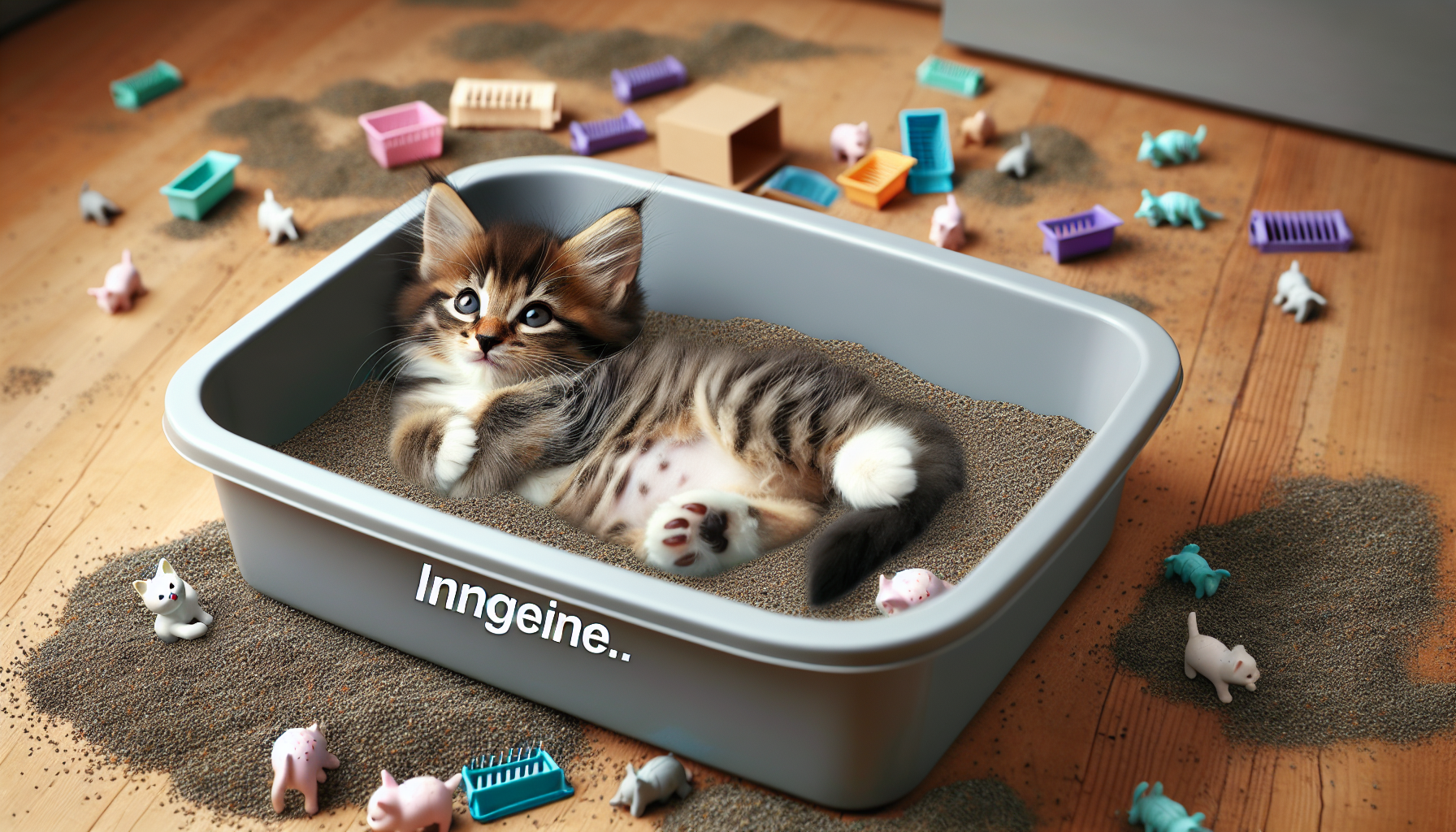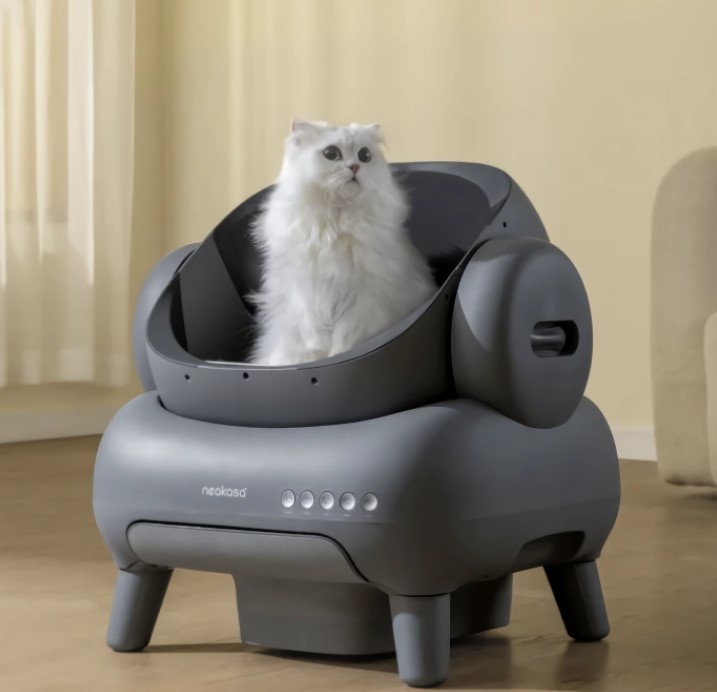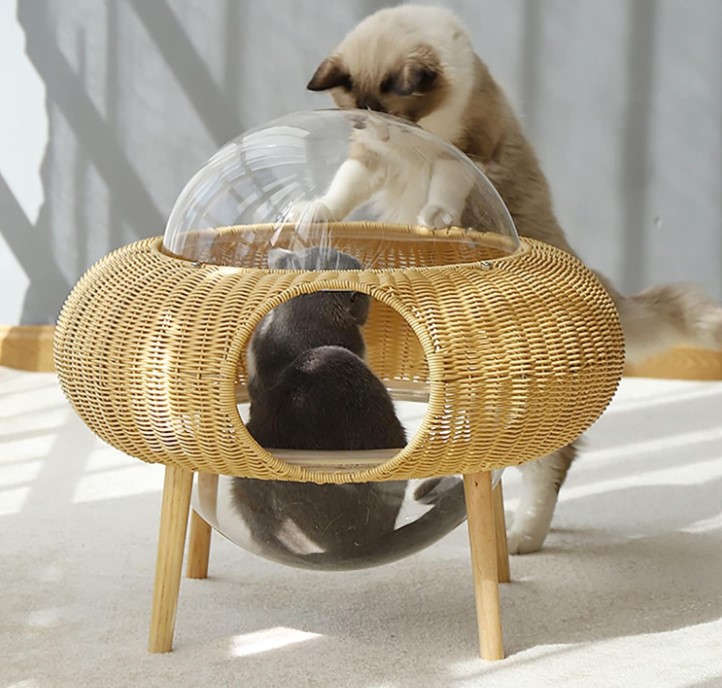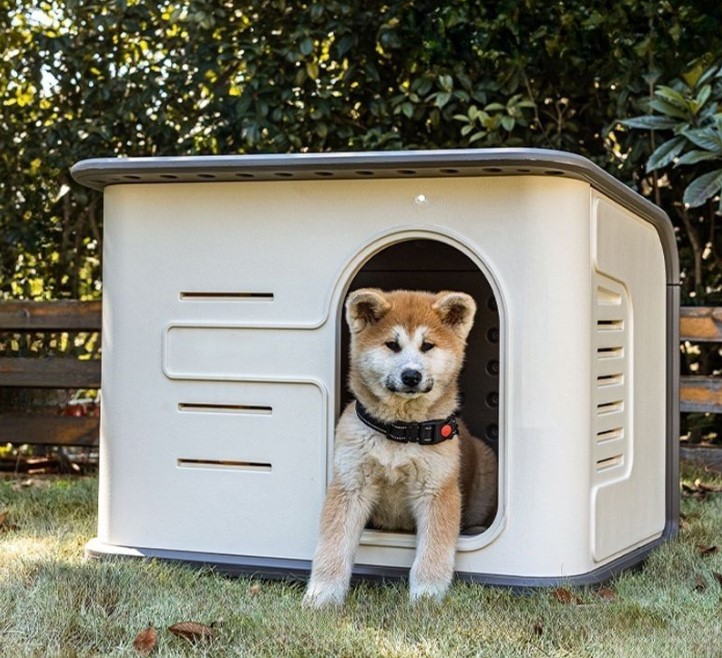Unraveling the Mystery of Litter Box Obsession in Kittens

Kittens are adorable creatures, and their quirky behavior can be quite entertaining. However, one aspect of their behavior that often leaves pet owners puzzled is their affinity for the litter box. It’s not uncommon to see kittens spending an inordinate amount of time in the litter box, even when they’re not necessarily doing their business. This behavior can be both fascinating and worrying, as it may indicate underlying issues or simply be a manifestation of their natural instincts.
In this article, we’ll delve into the reasons behind your kitten’s love for the litter box, exploring both normal and abnormal behavior. We’ll examine the role of instinct, scent marking, and territorialism in shaping their behavior, as well as potential underlying medical issues that may be contributing to their litter box lounging. By understanding the motivations behind your kitten’s behavior, you can take steps to create a positive litter box experience and encourage good habits.
Whether you’re a seasoned cat owner or a newcomer to the world of feline companionship, this article will provide you with valuable insights and practical tips to help you navigate the complex world of litter box behavior. So, let’s dive in and explore the fascinating world of kittens and their litter box habits!
1. The Normalcy of Litter Box Behavior in Kittens
Kittens are naturally drawn to their litter boxes, and this behavior is a normal part of their development. In the wild, cats use scent marking to identify their territory and communicate with other cats. This instinctual behavior is still present in domesticated kittens, who use their litter boxes to deposit their scent and mark their territory. This explains why kittens often spend time in their litter boxes, even when they’re not necessarily doing their business.
Additionally, kittens are also driven by an instinct to bury and hide their waste, a behavior that dates back to their wild ancestors. This behavior helps to conceal their scent from potential predators and competitors. In the context of a litter box, this instinct manifests as a strong desire to dig, bury, and cover their waste. This behavior can be misinterpreted as abnormal or excessive, but it’s actually a natural part of a kitten’s behavior.
It’s essential to understand that kittens’ affinity for their litter boxes is a normal part of their development and instincts. By recognizing and accepting this behavior, you can take steps to create a positive litter box experience that meets your kitten’s needs. This includes providing a clean, comfortable, and accessible litter box, as well as encouraging good habits through positive reinforcement and proper training. By doing so, you can help your kitten develop healthy habits and a strong bond with their litter box.
Instinctual Behavior
Kittens’ natural instincts play a significant role in shaping their behavior in the litter box. One of the primary instincts driving their behavior is the need to bury and hide their waste. In the wild, this behavior helps to conceal their scent from predators and competitors, increasing their chances of survival. Although domesticated kittens don’t face the same threats, they still retain this instinct, which is expressed in their litter box behavior. They may dig, scratch, and cover their waste with litter, often creating a bit of a mess in the process.
Another instinctual behavior influencing kittens’ litter box behavior is the need to mark their territory. Cats have scent glands in their paws, and when they scratch or dig in the litter box, they deposit their scent. This scent marking serves as a way for kittens to claim ownership of their territory and establish a sense of security and comfort. By recognizing and accommodating these instincts, you can create a litter box environment that meets your kitten’s needs and encourages good habits.
Understanding these instincts can help you appreciate your kitten’s behavior in the litter box, even when it may seem unusual or messy. By acknowledging and respecting their natural instincts, you can take steps to create a positive litter box experience that promotes healthy habits and a strong bond between your kitten and their litter box. This, in turn, can help reduce litter box-related problems and create a more harmonious living environment for both you and your kitten.
Scent Marking and Territorialism
Scent marking is a vital component of a kitten’s territorial behavior, and it plays a significant role in shaping their litter box behavior. Kittens have scent glands located in various parts of their body, including their paws, face, and near their whiskers. When they scratch, rub, or dig in the litter box, they deposit their scent, claiming ownership of the area and marking their territory. This behavior serves as a way for kittens to establish a sense of security and comfort, as well as to communicate with other cats.
In the context of the litter box, scent marking is essential for kittens to feel comfortable and secure. By depositing their scent, they create a sense of familiarity and ownership, which encourages them to use the litter box consistently. This behavior is especially important during the kitten’s critical development period, as it helps them establish a strong bond with their litter box and develop good habits.
The connection between scent marking and litter box behavior is complex, but understanding this relationship can help you create a more welcoming and comfortable litter box environment for your kitten. By recognizing and accommodating your kitten’s scent marking needs, you can encourage good habits and reduce litter box-related problems. This can be achieved by providing a clean and accessible litter box, as well as by using litter that allows your kitten to effectively scent mark and claim their territory.
2. Potential Reasons for Excessive Litter Box Lounging

While kittens’ affinity for their litter boxes is natural, excessive lounging can be a sign of underlying issues. It’s essential to identify the potential causes of your kitten’s prolonged litter box stays to ensure their overall health and well-being. One possible reason for excessive litter box lounging is medical issues. Kittens may be experiencing discomfort or pain while urinating or defecating, leading them to spend more time in the litter box. This can be caused by a range of health problems, including urinary tract infections, arthritis, or gastrointestinal issues.
Another possible reason for excessive litter box lounging is the litter box itself. If the litter box is not clean, spacious, or comfortable, your kitten may be more likely to spend extended periods of time in it. This can be due to a lack of maintenance, incorrect litter type, or inadequate litter box size. Additionally, changes in your kitten’s environment, such as a new pet or person in the home, can also contribute to excessive litter box lounging.
By recognizing the potential causes of excessive litter box lounging, you can take steps to address the underlying issues and create a more comfortable and welcoming litter box environment for your kitten. This may involve consulting with a veterinarian to rule out medical issues, adjusting the litter box setup, or providing additional attention and playtime to reduce stress and anxiety. By doing so, you can help your kitten develop healthy habits and reduce litter box-related problems.
Medical Issues
Medical issues can significantly impact a kitten’s litter box behavior, leading to abnormal or excessive use. One common health problem that can contribute to litter box issues is urinary tract infections (UTIs). UTIs can cause discomfort, pain, and inflammation in the urinary tract, making it uncomfortable for kittens to urinate. As a result, they may spend more time in the litter box, trying to avoid the pain or discomfort associated with urination. In some cases, kittens may even exhibit abnormal behaviors, such as straining or vocalizing while urinating.
Arthritis is another medical issue that can impact a kitten’s litter box behavior. This condition causes joint pain and inflammation, making it difficult for kittens to move around or engage in normal activities. As a result, they may be more inclined to spend extended periods of time in the litter box, where they can rest and avoid discomfort. Additionally, kittens with arthritis may have difficulty accessing the litter box or performing the necessary actions to bury their waste, leading to abnormal litter box behavior.
It’s essential to recognize the signs of medical issues that can contribute to abnormal litter box behavior. If you suspect that your kitten is experiencing discomfort or pain while using the litter box, it’s crucial to consult with a veterinarian to rule out any underlying health problems. By addressing medical issues promptly, you can help your kitten recover and develop healthy litter box habits. This may involve providing medication, adjusting the litter box setup, or offering additional support and care to help your kitten manage their condition.
Litter Box Maintenance and Hygiene
Litter box maintenance and hygiene play a crucial role in your kitten’s behavior and overall health. A clean and well-maintained litter box is essential for promoting good habits and reducing the risk of health problems. Kittens are naturally inclined to avoid soiled or dirty areas, and a dirty litter box can lead to abnormal behavior, such as avoiding the litter box altogether or exhibiting Anxiety-related behaviors. Conversely, a clean and well-maintained litter box can encourage your kitten to use it correctly and consistently.
Regular litter box maintenance involves scooping out solid waste daily, changing the litter completely every 7-10 days, and cleaning the litter box with a mild detergent and warm water. Failure to maintain a clean litter box can lead to the buildup of bacteria, fungi, and parasites, which can cause a range of health problems, including respiratory infections and parasitic infestations. Additionally, a dirty litter box can also lead to unpleasant odors and a decrease in your kitten’s overall quality of life.
By prioritizing litter box maintenance and hygiene, you can create a healthy and welcoming environment for your kitten. This involves establishing a regular cleaning routine, providing an adequate litter box size, and selecting a litter that meets your kitten’s needs. By doing so, you can promote good habits, reduce the risk of health problems, and strengthen the bond between you and your kitten. Remember, a clean litter box is essential for your kitten’s physical and emotional well-being.
3. Creating a Positive Litter Box Experience
Creating a positive litter box experience is crucial for your kitten’s physical and emotional well-being. A welcoming litter box environment can encourage your kitten to use the litter box correctly and consistently, reducing the risk of accidents and behavioral problems. One of the most important factors to consider is the litter box itself. Choose a litter box that is large enough for your kitten, with low sides and a non-slip surface to make it easy for them to access and maneuver.
The type of litter used can also impact your kitten’s litter box experience. Opt for a litter that is gentle on their paws and easy to dig in, such as a clay or silica-based litter. Avoid litters with strong fragrances or dyes, as these can be overwhelming for your kitten’s sensitive senses. Additionally, consider the litter box’s location and privacy. Place the litter box in a quiet, low-traffic area where your kitten can feel safe and comfortable.
By creating a positive litter box experience, you can strengthen the bond between you and your kitten and promote healthy habits. Remember to clean the litter box regularly, provide an adequate supply of litter, and monitor your kitten’s behavior for any signs of distress or discomfort. By doing so, you can create a welcoming space that your kitten will be happy to use.
Choosing the Right Litter
Choosing the right litter for your kitten is a crucial decision that can impact their health, behavior, and overall well-being. With so many options available, it can be overwhelming to select the perfect litter for your kitten. However, by considering your kitten’s individual preferences and needs, you can make an informed decision that meets their unique requirements.
One of the primary factors to consider is your kitten’s age and developmental stage. Kittens under four months may require a litter that is gentle on their sensitive paws and easy to digest, in case of accidental ingestion. For this reason, a non-clumping, natural litter such as pine or recycled paper may be a suitable option. On the other hand, older kittens may benefit from a clumping litter that makes scooping easier and more efficient. Additionally, kittens with health issues or allergies may require a litter that is hypoallergenic or fragrance-free.
It’s also essential to consider your kitten’s individual personality and behavior. Some kittens may be picky about texture, while others may be sensitive to certain fragrances or dyes. By observing your kitten’s preferences and reactions to different litters, you can narrow down the options and select a litter that meets their unique needs. Remember, every kitten is different, and what works for one kitten may not work for another. By taking the time to choose the right litter, you can promote healthy habits and a strong bond between you and your kitten.
Litter Box Size and Accessibility
Ensuring the litter box is the right size and easily accessible for your kitten is crucial for promoting healthy habits and reducing the risk of accidents. A litter box that is too small can lead to discomfort and stress for your kitten, while one that is too large may be overwhelming. A general rule of thumb is to provide a litter box that is at least 1.5 times the length of your kitten. This will give them enough room to comfortably turn around and move about.
In addition to size, accessibility is also a critical factor to consider. Your kitten should be able to easily enter and exit the litter box without straining or struggling. This is particularly important for kittens with mobility issues or arthritis. A litter box with low sides and a non-slip surface can make it easier for your kitten to access and use the litter box. You should also consider the location of the litter box, placing it in a quiet, low-traffic area where your kitten can feel safe and comfortable.
By ensuring the litter box is the right size and easily accessible, you can promote healthy habits and reduce the risk of accidents. Remember, every kitten is different, and what works for one kitten may not work for another. By observing your kitten’s behavior and preferences, you can make adjustments to the litter box size and accessibility to meet their unique needs. By doing so, you can create a welcoming and comfortable space for your kitten to do their business.
4. Training Your Kitten to Use the Litter Box Properly
Training your kitten to use the litter box properly requires patience, consistency, and positive reinforcement. One of the most effective strategies is to create a routine and stick to it. Start by placing your kitten in the litter box after meals or playtime, when they are most likely to do their business. Praise and reward them with treats and affection when they use the litter box correctly. This will help them associate the litter box with positive experiences.
Another important strategy is to provide a clean and comfortable litter box environment. Scoop out solid waste daily and change the litter completely every 7-10 days. This will help reduce the risk of accidents and make your kitten more likely to use the litter box correctly. You should also consider the type of litter you use, as some kittens may prefer certain textures or smells. By experimenting with different litters and observing your kitten’s preferences, you can find a litter that they are comfortable with.
Remember, every kitten learns at their own pace, and accidents are a normal part of the training process. Don’t punish or scold your kitten for mistakes, as this can create negative associations and make the training process more difficult. Instead, stay calm and patient, and reward good behavior. With time and consistency, your kitten will learn to use the litter box correctly and develop healthy habits.
Positive Reinforcement
Positive reinforcement is a powerful tool in encouraging proper litter box habits in your kitten. By rewarding good behavior, you can create a positive association with the litter box and motivate your kitten to continue using it correctly. One of the most effective ways to reward good behavior is with treats and praise. Whenever your kitten uses the litter box correctly, offer them a treat and praise them with affection and verbal praise. This will help them associate the litter box with positive experiences and encourage them to repeat the behavior.
Another way to reinforce good behavior is through play and attention. Engage in play with your kitten or provide them with attention and affection immediately after they use the litter box correctly. This will help them feel rewarded and motivated to continue using the litter box properly. You can also use clicker training to reinforce good behavior, by clicking a clicker and providing a treat immediately after your kitten uses the litter box correctly.
Remember, consistency is key when it comes to positive reinforcement. Ensure that everyone in the household is using the same rewards and praise to reinforce good behavior. By doing so, you can create a strong and consistent association with the litter box and encourage your kitten to develop healthy habits. Positive reinforcement is a powerful tool in litter box training, and with patience and consistency, you can help your kitten develop good habits that will last a lifetime.
Redirection and Distraction
Redirecting your kitten’s attention to the litter box and away from unwanted areas is a crucial step in litter box training. When you catch your kitten in the act of eliminating outside of the litter box, calmly and gently redirect them to the litter box. You can do this by picking them up and placing them in the litter box, or by using a toy or treat to lure them to the litter box. This will help them associate the litter box with the correct behavior and encourage them to use it correctly.
Another effective way to redirect your kitten’s attention is through distraction. If you see your kitten starting to eliminate outside of the litter box, try distracting them with a toy or treat to interrupt the behavior. This will help them forget about the unwanted behavior and focus on the desired behavior. You can also use verbal cues, such as
5. When to Seek Professional Help
While litter box training can be a straightforward process, there are situations that may require seeking professional help. If you’re experiencing difficulties with litter box training, or if your kitten is exhibiting abnormal behavior, it’s essential to consult a veterinarian or animal behaviorist. They can help identify underlying medical issues or behavioral problems that may be contributing to the problem.
Some common situations that may require professional help include persistent accidents outside of the litter box, refusal to use the litter box, or excessive digging or scratching. Additionally, if your kitten is exhibiting signs of anxiety or stress, such as avoidance or fear of the litter box, it’s essential to seek professional help. A veterinarian or animal behaviorist can provide guidance on how to address these issues and develop a plan to get your kitten back on track.
It’s also important to seek professional help if you’ve tried various litter box training techniques and haven’t seen improvement. A veterinarian or animal behaviorist can provide a fresh perspective and offer customized advice tailored to your kitten’s specific needs. By seeking professional help when needed, you can ensure your kitten receives the support and guidance they need to develop healthy habits and a strong bond with the litter box.
Persistent Litter Box Issues
If you’re experiencing persistent or severe litter box issues with your kitten, it’s essential to know when to seek professional help. Persistent litter box problems can be frustrating and stressful for both you and your kitten, and can even lead to behavioral problems if left unchecked. If you’ve tried various litter box training techniques and haven’t seen improvement, it’s time to seek help from a veterinarian or animal behaviorist.
Some common signs that you may need to seek professional help include frequent accidents outside of the litter box, refusal to use the litter box, or excessive digging or scratching. Additionally, if your kitten is exhibiting signs of anxiety or stress, such as avoidance or fear of the litter box, it’s essential to seek help. A veterinarian or animal behaviorist can help identify underlying medical issues or behavioral problems that may be contributing to the problem.
By seeking professional help, you can get the support and guidance you need to address persistent litter box issues. A veterinarian or animal behaviorist can provide customized advice and treatment plans tailored to your kitten’s specific needs. They can also help you identify potential underlying causes of the problem, such as medical issues or environmental factors, and provide guidance on how to address them. With the right support and guidance, you can help your kitten overcome persistent litter box issues and develop healthy habits.
Accompanying Health Issues
Underlying health issues can often contribute to litter box behavior in kittens. As a responsible owner, it’s essential to recognize the signs of potential health issues that may be affecting your kitten’s litter box habits. One common health issue that can affect litter box behavior is urinary tract infections (UTIs). If your kitten is experiencing pain or discomfort while urinating, they may avoid using the litter box or exhibit unusual behavior.
Another health issue that can impact litter box behavior is constipation. If your kitten is experiencing difficulty passing stool or is experiencing pain during bowel movements, they may associate the litter box with discomfort and avoid using it. Additionally, gastrointestinal issues such as inflammatory bowel disease or gastrointestinal foreign bodies can also affect litter box behavior. If you suspect that your kitten is experiencing health issues related to their litter box behavior, it’s essential to consult with a veterinarian.
By recognizing the signs of underlying health issues, you can take steps to address the root cause of the problem and help your kitten develop healthy litter box habits. A veterinarian can provide a thorough examination and diagnosis, and recommend treatment options to address any underlying health issues. With the right treatment and care, you can help your kitten overcome health-related litter box issues and develop a strong and healthy bond with the litter box.
How often should I clean my kitten’s litter box?
It’s recommended to scoop your kitten’s litter box daily and change the litter completely every 7-10 days. However, this may vary depending on the number of kittens using the litter box and the type of litter used.
What are some common signs of litter box anxiety in kittens?
Common signs of litter box anxiety in kittens include avoidance of the litter box, accidents outside of the litter box, and excessive vocalization or stress when approaching the litter box.
Can I use punishment to deter my kitten from eliminating outside of the litter box?
No, punishment is not an effective or recommended method for addressing litter box issues. Instead, focus on positive reinforcement and redirection to encourage your kitten to use the litter box correctly.
How can I prevent my kitten from developing litter box habits?
Start litter box training early, provide a clean and comfortable litter box environment, and reward your kitten for correct behavior. Consistency and patience are key to developing good litter box habits.
What are some common medical issues that can affect litter box behavior in kittens?
Common medical issues that can affect litter box behavior in kittens include urinary tract infections, constipation, and gastrointestinal issues. If you suspect that your kitten’s litter box behavior is related to a medical issue, consult with a veterinarian.




